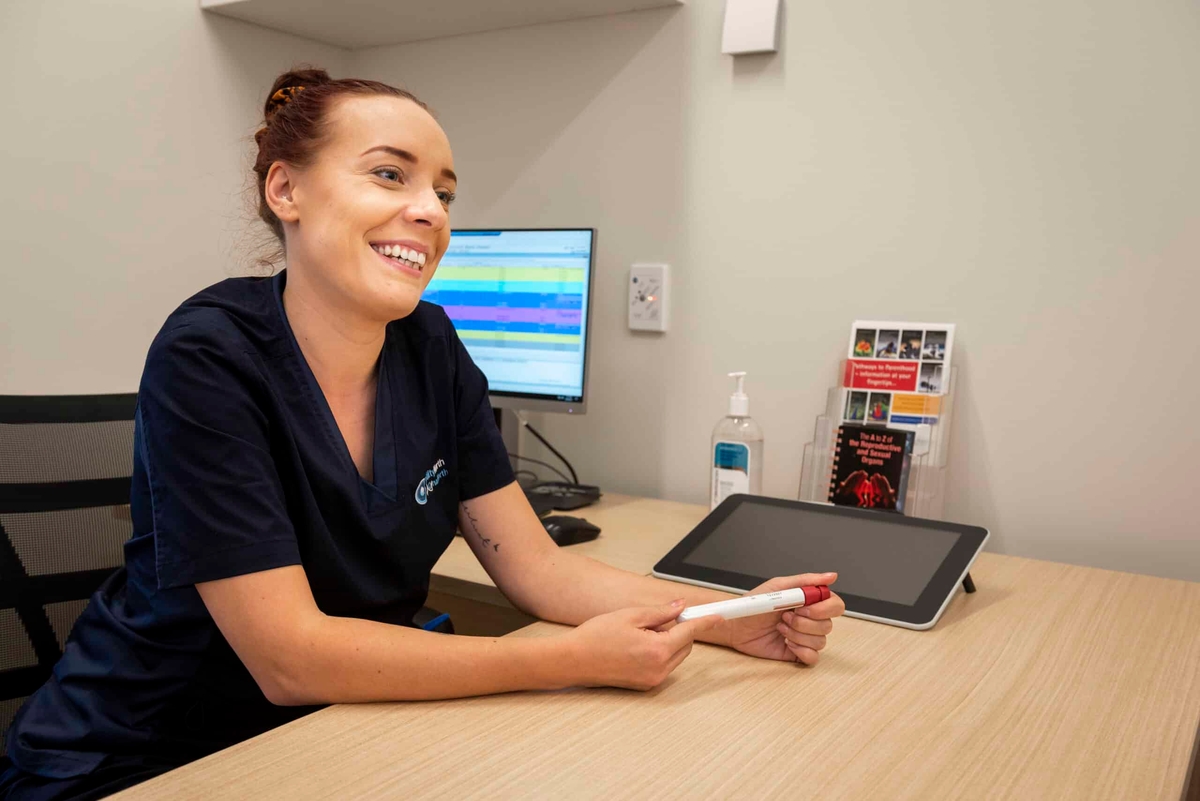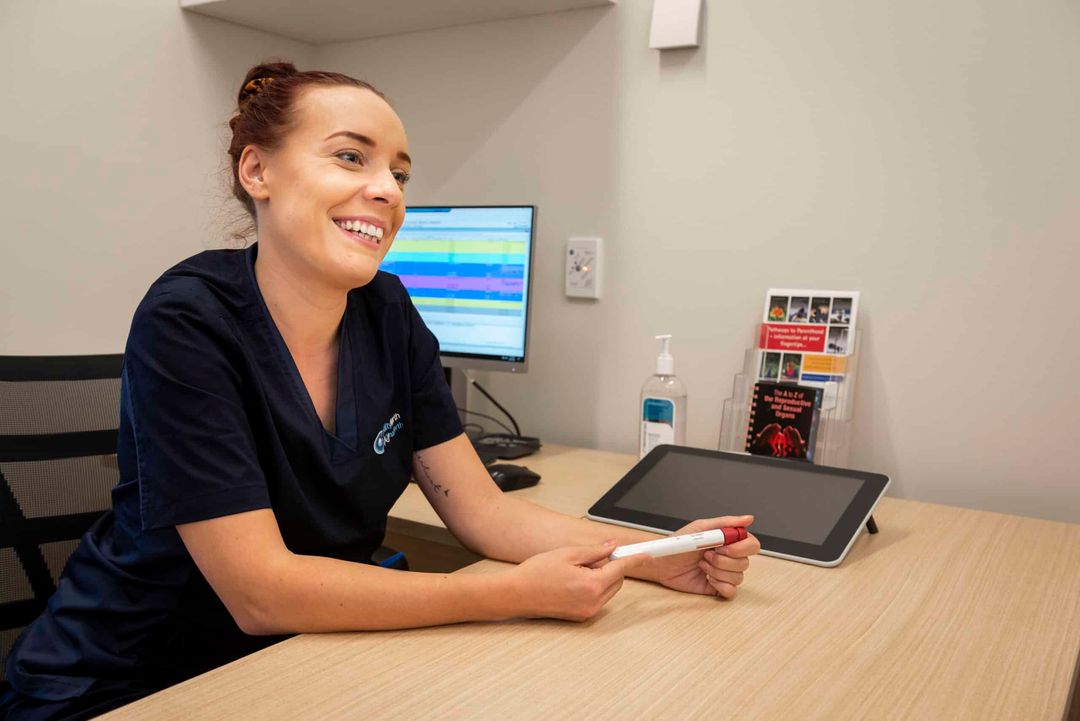Infertility Treatments
Ovulation Induction Perth
The use of medication to cause, regulate or upregulate ovulation to increase the chance of pregnancy.

What is Ovulation Induction?
Ovulation induction is a low-intervention type of fertility treatment that involves the administration of hormonal medication to cause ovulation, control ovulation or increase the number of eggs produced during ovulation, to increase the likelihood of achieving a pregnancy.
Why is Ovulation Induction used?
If ovulation is not occurring regularly, it may be necessary to administer hormone medication to stimulate the ovaries. However, before these treatments are used, it is important that thorough investigations are carried out to determine why regular ovulation is not occurring, as OI does not suit all patients and some women may be better suited to more specialised treatment.

Who is Ovulation Induction Suitable For?
Ovulation induction may be recommended by your doctor for:
- Patients with unexplained infertility
- Patients with long, irregular or infrequent cycles
- Patients who do not ovulate spontaneously
- Couples with normal male investigations
Conversely, ovulation induction treatment is not recommended for:
- Patients over 38 years of age
- Patients with tubal infertility (i.e. blocked or damaged fallopian tubes)
- Patients with severe endometriosis
- Couples with suboptimal sperm parameters
What Medication Assists with Ovulation Induction?
During your ovulation induction cycle, several medications may be prescribed to help optimise your chances of conception.
These may include:
- Letrozole (aromatase blocker). Blocking aromatase lowers the amount of estrogen in your body. When the estrogen decreases, your body secretes hormones (FSH) that help to induce ovulation. Letrozole is commonly used from Day 2 – 5 of your cycle.
- Follicle-Stimulating Hormone (FSH) injections, such as Gonal-F, Rekovelle, or Puregon. FSH medications are used to stimulate the recruitment and development of an oocyte (egg) during an ovulation induction cycle. FSH is typically used from Day 2 of your cycle until ovulation.
- Human Chorionic Gonadotropin (hCG) is a hormone that helps with the final maturation of the egg and triggers the ovaries to release the egg (ovulation). This is commonly referred to as a “trigger” injection. This medication is usually only given once per cycle at the time of ovulation.
- Progesterone is often prescribed for luteal phase support. Progesterone develops and prepares the endometrium for implantation, prevents uterine contractions protecting pregnancy, and inhibits menstruation.
What Are The Risks of Ovulation Induction?
When undertaking ovulation induction, there is a slightly increased chance of producing too many follicles, with a very small risk of developing ovarian hyperstimulation syndrome (OHSS). OHSS symptoms include abdominal pain, nausea, vomiting, bloating and dehydration. Our stringent monitoring practices will enable us to determine if you are at an increased risk of developing OHSS.
During an ovulation induction cycle, we will aim to stimulate the growth of only one or two follicles to minimise the risk of OHSS, as well as multiple pregnancy.
About 10% of patients undergoing ovulation induction experience hot flushes, while other side effects can include nausea, breast tenderness and mild mood swings. These side effects are less likely to occur when using letrozole than they are with clomiphene or FSH.






